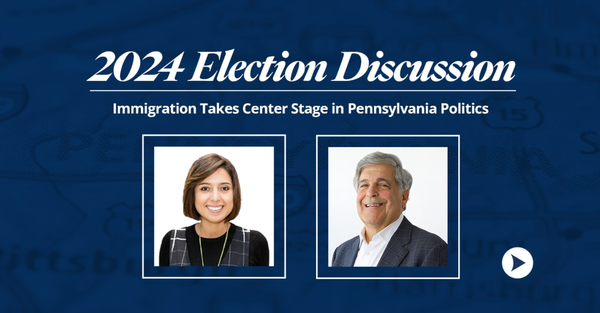Keeping American Families Together

Mariah Ferguson, Policy Advocacy Associate at the Immigration Hub
On June 18, 2024, the Biden-Harris administration announced a policy initiative known as “Keeping Families Together,” aimed at ensuring that U.S. citizens with noncitizen spouses and children can maintain their family unity. The measure, which would streamline access to lawful status for thousands of noncitizen spouses of American citizens, showcases America’s strong humanitarian traditions and commitment to the principle of family unity while also significantly strengthening the nation’s economic, social, and cultural fabric.
Unfortunately, the Keeping Families Together policy has been challenged by Attorneys General from 16 conservative states, and as of this writing, its implementation has been temporarily halted pending further legal action.
What is Keeping Families Together and Who Is Eligible for the Process?
Keeping Families Together epitomizes America’s strong commitment to the principle of family unity, which is a key foundation of the nation’s economic, social, and cultural vitality. Today, these important goals are often hindered by the significant hurdle many families face by having to leave the United States as part of their journey to lawful permanent residence (LPR or “green card”). Keeping Families Together seeks to streamline access to LPR status for eligible noncitizen spouses of American citizens by allowing them to remain in the country throughout the entire process.
Importantly, Keeping Families Together does not, on its own, confer LPR status to noncitizens; rather, it streamlines access for families to initiate the multistep green card application process, which includes criminal and other background checks, establishing the applicant’s economic self-sufficiency, and payment of application fees, among other stringent requirements. It accomplishes this through the executive’s authority under immigration laws to “parole” individuals into the United States, and by establishing additional eligibility requirements which are:
- Be physically present in the U.S. without admission or parole;
- Have been continuously present in the U.S. for at least 10 years as of June 17, 2024; and
- Have a legally valid marriage to a U.S. citizen as of June 17, 2024.
U.S. Citizenship and Immigration Services (USCIS) began accepting applications on August 19, 2024.
What Does the Texas Lawsuit Mean for Applications Going Forward?
On August 23, 2024, Attorneys General from 16 conservative states filed a lawsuit challenging Keeping Families Together. On August 26, 2024, the U.S. District Court for the Eastern District of Texas issued an administrative stay for the program. In response to the administrative stay, six undocumented immigrants, joined by The Coalition for Humane Immigrant Rights, filed a motion to intervene. If the motion to intervene is granted, the immigrants and their attorneys will join the federal government in defense of the program in court. Where the government will defend the program on behalf of DHS and other agencies, the immigrants’ defense will focus on their personal interests.
At this time, the administrative stay mandates that DHS cannot grant parole under Keeping Families Together through September 23, 2024. It is also important to note that DHS will continue to accept applications why the administrative stay is in place, and continue to conduct biometric screenings. Applications approved prior to the administrative stay should not be affected. Further legal action is ongoing in the Texas court.
Who Stands to be Helped by Keeping Families Together?
Keeping Families Together could benefit approximately 500,000 undocumented immigrants married to U.S. citizens, along with an additional 50,000 undocumented immigrant children in stepchild relationships with U.S. citizens. If a favorable exercise of parole is granted, individuals may be eligible to apply for work permits while they wait to adjust to LPR status. Keeping American families together and providing access to legal status and work permits will have significant, positive, community-wide impacts. Work permits and permanent residency will offer the opportunity to more fully participate in public life, reduce stress around finances and potential deportation, and encourage families to pursue public benefits for their children that can help them thrive.




